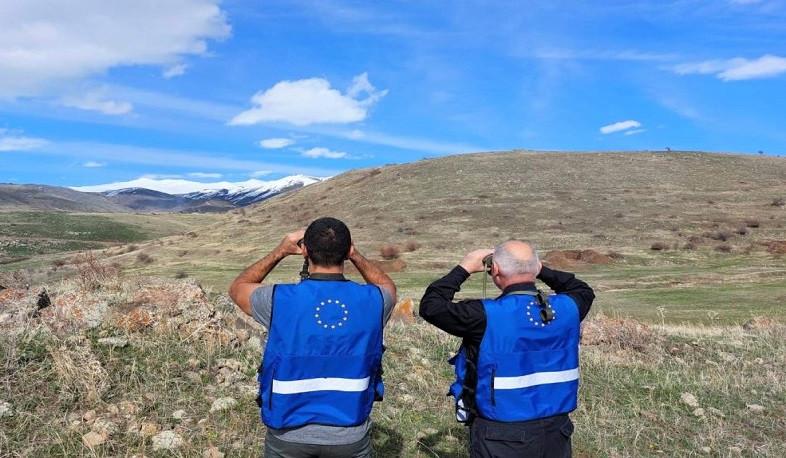Armenia playing role of pawn in someone else’s game Obvious hypocrisy of Yerevan and its patrons
Azerbaijani President Ilham Aliyev's responses at the 2nd Shusha Global Media Forum are set to spark extensive debate both within Azerbaijan and internationally. Addressing a range of globally significant issues, President Aliyev offered candid assessments of historical, current, and future actions, ensuring that his remarks will be a focal point of discussion for an extended period.
“We are deeply disappointed with the attitude of this American administration towards Azerbaijan. A one-sided approach, attempts to build dividing lines in the Caucasus, a very strange meeting between the US Secretary of State, the President of the European Commission, and the EU High Representative, and Mr. Pashinyan on April 5th in Brussels, and attempts to finance Armenian military buildup through the so-called European Peace Facility. You know how they call it - the Peace Facility. And all that is against us, and this is absolutely unacceptable,” the Azerbaijani president noted.
We have repeatedly heard Yerevan's representatives proclaim their willingness to sign a peace treaty with Azerbaijan. Armenian Prime Minister Nikol Pashinyan, Foreign Minister Ararat Mirzoyan, and President of the Armenian National Assembly Alen Simonyan are now striving to present themselves as "doves of peace." It is particularly ironic to observe Pashinyan, who once vigorously championed a hardline stance as a "war hawk," attempting to embrace this new role. Azerbaijani President Ilham Aliyev wryly remarked on Pashinyan's previous passionate assertion in Khankendi that "Karabakh is Armenia, that’s it," highlighting the stark contrast between his past and present positions.
Considering the monumental shifts in the South Caucasus following Azerbaijan's restoration of its territorial integrity after the 44-day second Karabakh war and the one-day anti-terrorist operation in the Karabakh region, the rhetoric of Pashinyan and his team has notably changed. Their speeches reveal that Armenia has become a pawn in a larger geopolitical game, lacking autonomy in its decision-making. Armenia is now compelled to follow directives from Washington and Paris. This reflects the efforts of the US and France to retain their influence in the South Caucasus, which has been significantly diminished by Azerbaijan's decisive victories over Armenia.

In late March 2024, the Armenian parliament ratified an agreement for the European Union mission on the border with Azerbaijan. Officially, the EU Mission in Armenia (EUMA) is intended to "contribute to the resolution of the conflict with Azerbaijan," despite Baku's repeated assertions that the Azerbaijan-Armenia conflict has been resolved and that there is no need for "mediators." Established on January 23, 2023, EUMA is set to operate for two years. This mission represents a new strategic manoeuvre by France and the US, recognizing that the OSCE Minsk Group's role has been rendered ineffective and see limited prospects for genuine mediation. With their influence in the South Caucasus at stake, they are setting up what can be seen as geopolitical "mines," one of which is EUMA.
The Azerbaijani side has repeatedly demonstrated that the EU Mission in Armenia (EUMA) is provocative in nature, highlighting concerns over its composition of retired and current military and intelligence officers from various European countries and Canada. These personnel are suspected of being tasked with generating “reasons” to discredit Azerbaijan and disseminate disinformation—a topic addressed at the 2nd Shusha Global Media Forum.
Armenian media reports that the agenda for the European Union Council of Foreign Ministers’ meeting on July 22 includes discussions on allocating 10 million euros to Armenia from the European Peace Facility and engaging in visa liberalization talks with Armenia. This financial aid, intended to bolster Armenia’s defence capabilities, is troubling to many, given that the European Peace Facility funds are supporting the military of a country that occupied Azerbaijani lands for nearly three decades. The EU’s willingness to fund the army of an occupying force raises serious ethical questions.
On July 20 at 22:10 (GMT+4), the Armenian armed forces stationed in the Istisu settlement of the Basarkechar district targeted Azerbaijani positions in the Istisu settlement of the Kalbajar district using large-caliber small arms. This act starkly contrasts with the professed intentions of Armenia's so-called "doves of peace," revealing a significant disparity between their rhetoric and actions.
It is evident that Armenia is being used as a pawn in a larger geopolitical game against Azerbaijan, leading it toward further defeats and setbacks. The situation mirrors the experiences of Georgia and Ukraine, which have also suffered high costs for Western support. The West, particularly the US and France, has historically sought its own interests rather than those of its allies and has often abandoned them during critical moments. Armenia appears to be on a similar path, seemingly destined to face its own harsh lessons through new setbacks.
Akbar Hasanov








